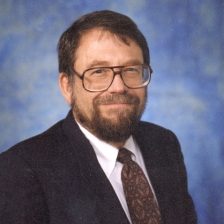Marc Lindenberg’s long career of public service culminated in his tenure as dean of the Daniel J. Evans School of Public Policy & Governance at the University of Washington from 1998 to 2002. Prior to joining the school, which had been called the Graduate School of Public Affairs when he was named dean, Dr. Lindenberg served as senior vice president of international development at the Cooperative for Assistance and Relief Everywhere, (CARE USA). There, Lindenberg oversaw more than $400 million in relief and development programs in 36 countries.
Marc Lindenberg first learned about helping others at age 2, when he and his family moved to the Pittsburgh’s historic African-American community, the Hill District (the setting of The Pittsburgh Cycle, a 10-play series by August Wilson, another Pittsburgh transplant who called Seattle home). Lindenberg’s father, Sidney J. Lindenberg, became the executive director position at the Irene Kaufman Settlement, an agency that coordinated services between city, social, and religious organizations; his son felt the imprint for the rest of his life, becoming known for his commitment to humanitarian causes and international relief efforts.
Oscar Arias, a Nobel Peace Laureate and a former president of Costa Rica, praised the dean as “the epitome of a global citizen” shortly before Lindenberg passed away at age 56, in 2002. The same year, the Evans School dedicated the Marc Lindenberg Center for Humanitarian Aid, International Development, & Global Citizenship, where his legacy continues. He was survived by his wife, Cathy Strachan Lindenberg, their son and daughter, his sister Sue McClelland, and their mother, Ruth Ellen Zittel Lindenberg, a social work pioneer in her own right who died in 2004.
Lindenberg, who was born in Chicago in 1945, divided his career between international development organizations and the academic world. In addition to his time at the UW, he taught and researched at the John F. Kennedy School of Government at Harvard University and served as dean of the Instituto Centroamericano de Administración de Empresas (INCAE), a Harvard-affiliated business school in Costa Rica and Nicaragua. He also served on the boards of Oxfam America and the Desmond Tutu Peace Foundation, advised U.S. President Jimmy Carter and United Nations Secretary-General Kofi Annan, and planned strategy for the Gates Foundation and World Bank. His final book, Going Global: Transforming Relief and Development NGOs (2001), was nominated for numerous awards and prizes.
Upon Lindenberg’s death, UW President Richard L. McCormick summarized the dean’s contributions to the school.
“When he came to University of Washington, he brought a new way for a university to engage world problems, and it affected and influenced all of us.”
The Daniel J. Evans School of Public Policy & Governance at the University of Washington is proud of the service of its faculty, past and present.
